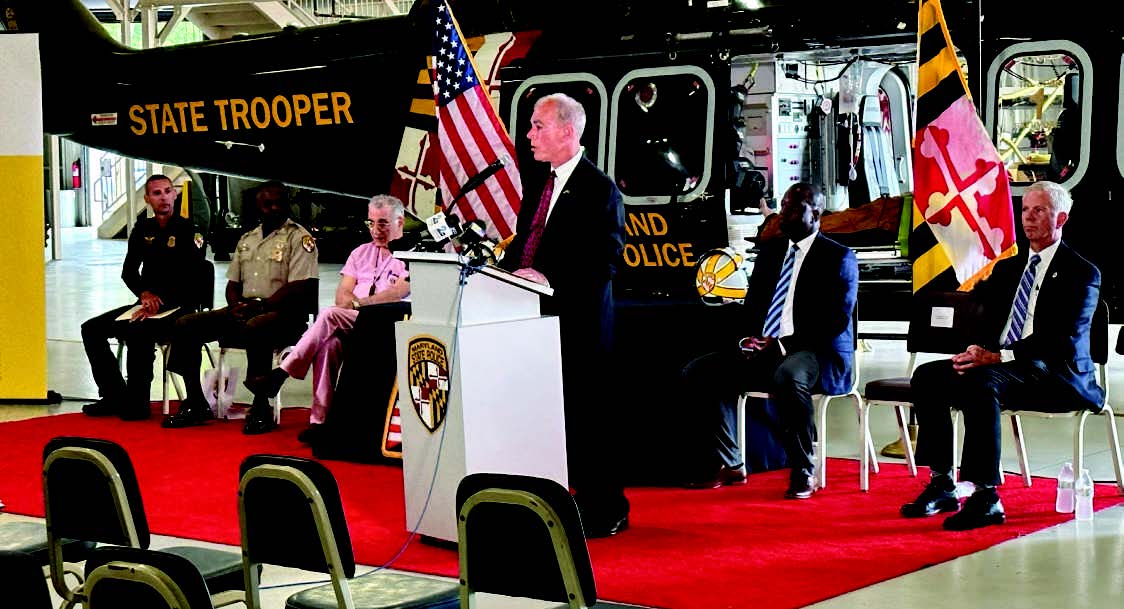 Office of Aeromedical Director/ Aeromedical Operations
Office of Aeromedical Director/ Aeromedical Operations
The Office of the Aeromedical Director provides the necessary physician medical support to the Maryland State Police Aviation Command (MSPAC) to meet the emergency medevac needs of Maryland’s citizens. Aeromedical Operations is actively involved in ongoing training and verification of technical proficiency for Maryland State Police flight paramedics and provides around-the-clock consultation support to Systems Communications (SYSCOM) for medevac requests and medical direction. Aeromedical teams are actively involved in the development of new patient care protocols and the oversight of ongoing care.
Maryland State Police Aviation Command
In FY 2025, the Maryland State Police Aviation Command (MSPAC) provided care to 2,050 patients. Of these patients, 2,027 (99%) were prehospital at the request of local EMS and 23 (1%) were transported between hospitals to a higher level of care. This year, MSPAC responded to 747 motor vehicle crashes, 537 falls, 69 gunshot wounds, 66 pedestrian injuries, 55 assaults, 49 burns, 40 stabbings, 18 industrial injuries, and 13 drownings.
MSPAC uses the AgustaWestland 139 (AW-139) model of aircraft as an excellent platform for multiple missions. Equipped with the most current safety technology as recommended by the National Transportation Safety Board, the AW-139 aircraft are powerful enough to carry two patients and two EMS clinicians despite the challenging heat and humidity of the summer months. The acquisition of an FAA-certified Flight Training Device has allowed significant hours of pilot training to be conducted under simulated conditions, not only saving aircraft flight hours but also allowing the simulation of in-flight emergencies not able to be performed in an actual flying aircraft.
Rapid Sequence Intubation
Adult and pediatric rapid sequence intubation (RSI) programs as defined in The Maryland Medical Protocols for Emergency Medical Services are designed to address the needs of patients whose airways are otherwise difficult to secure, including those with severe head injuries. Flight paramedics administer neuromuscular blocking medications that facilitate endotracheal intubation for patients who are not breathing adequately. Scenario-based simulation training modeled after real-life incidents enhances the knowledge and skills of flight paramedics and provides an effective method for recertification in Advanced Cardiac Life Support (ACLS), International Trauma Life Support (ITLS), and Pediatric Advanced Life Support (PALS).